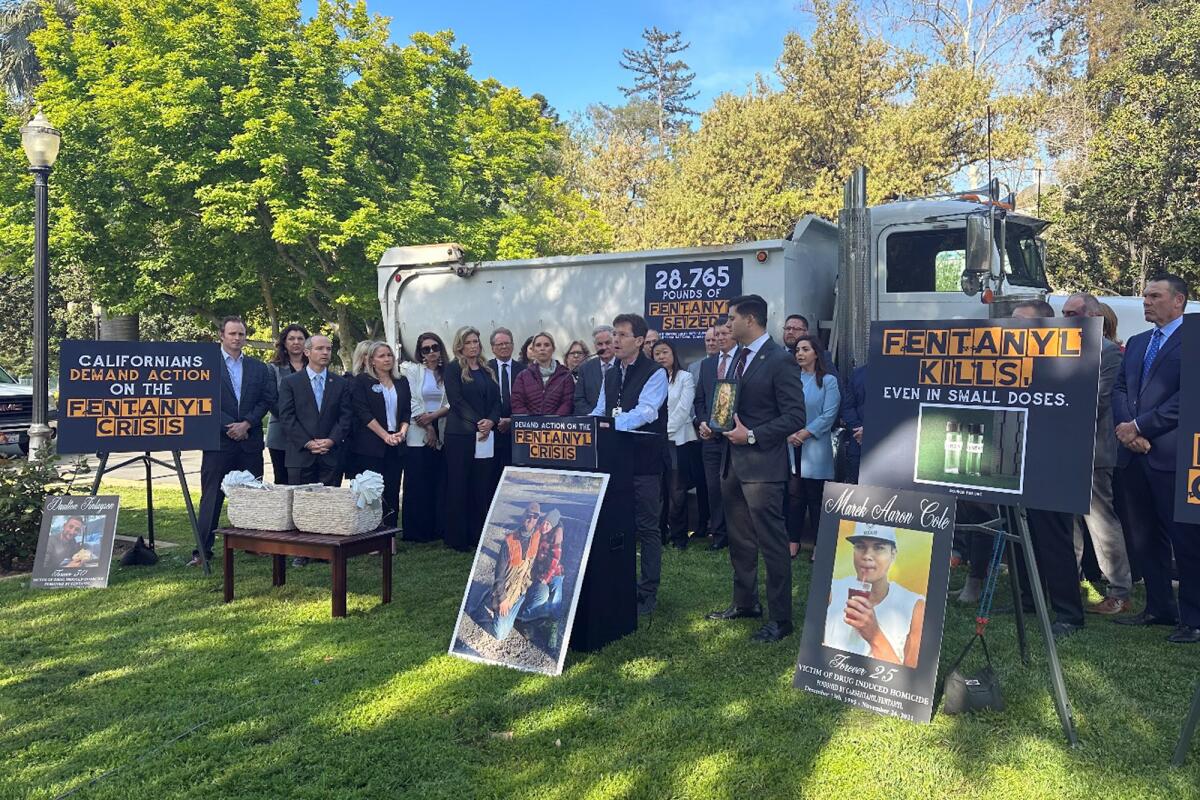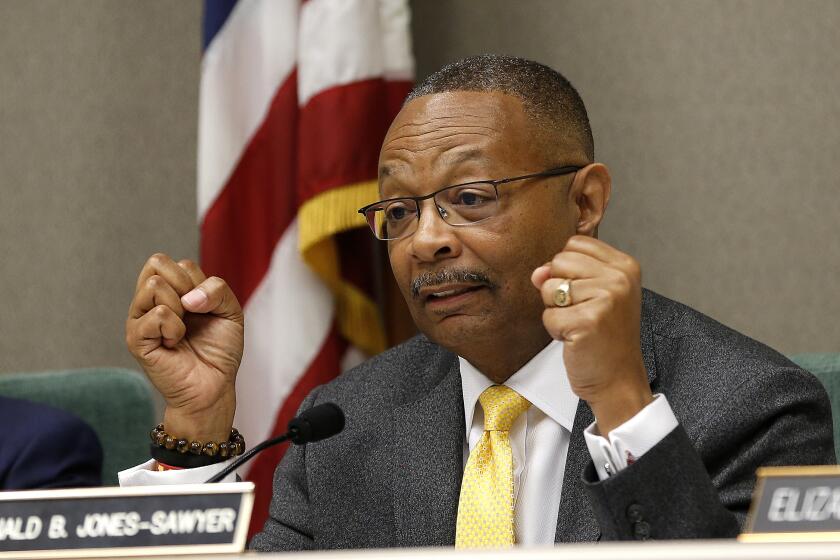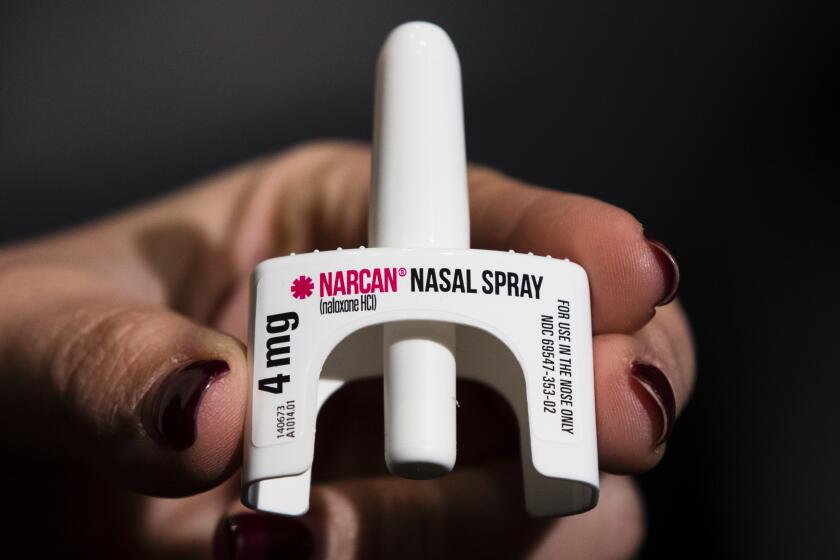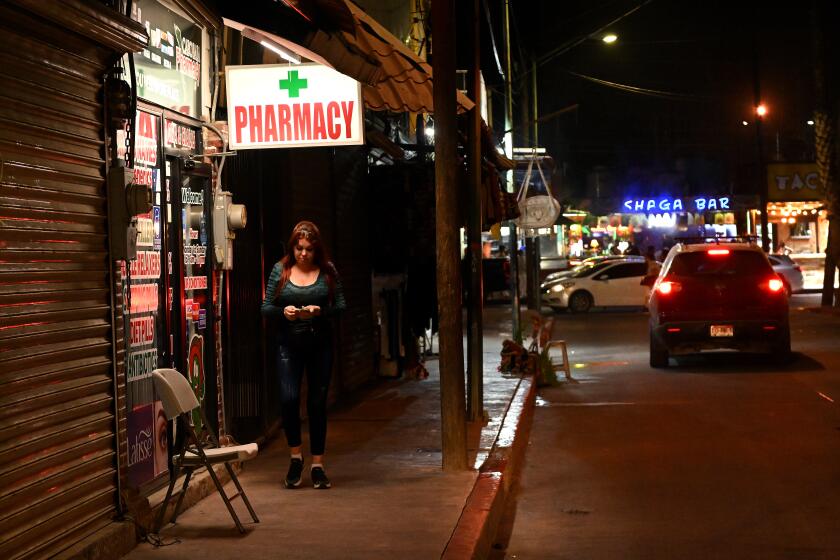Punishment or prevention? California debates fentanyl crisis

SACRAMENTO — Pamela Smith remembers vividly the last time she saw her only son alive.
It was 3:18 a.m. on July 3, 2016, in Fresno, and 22-year-old Jackson Smith was lying motionless on a table in an emergency room while a nurse performed chest compressions. Earlier that night, he had taken an oxycodone pill laced with fentanyl, and then he stopped breathing. Within seconds of his mother entering the emergency room, he died.
Since then, Smith has dedicated her life to fighting the fentanyl crisis. This year, that has meant advocating for some of the more than 30 bills introduced in the California Legislature to address the issue.
But a number of those bills have since stalled, caught in a philosophical dispute between lawmakers about the best way to address a crisis that is killing roughly 110 people in the state each week. About half of the proposals focus on punitive measures, such as punishing drug dealers with longer prison sentences, while the others aim to increase accessibility to fentanyl overdose treatments, and to create education and prevention programs.
The bills focusing on punitive measures were at risk of getting lost until Smith and dozens of other protesters converged on the state Capitol last week demanding they be heard. At a special hearing Thursday, the Assembly Public Safety Committee finally made some progress: It advanced four bills including one that would increase penalties for dealers with at least one kilogram of fentanyl products and another that would prohibit people from carrying a gun while also being in possession of fentanyl.
In L.A. County, the number of deaths linked to fentanyl rose from 109 in 2016 to 1,504 in 2021, the county public health department found.
The committee also voted down two bills that would lengthen prison sentences for fentanyl-related crimes, and another bill to toughen penalties for sales of fentanyl on social media was shelved.
Smith, who testified Thursday, said she was disappointed that a bill she supported did not advance, “but I hope to believe them when they say they’re willing to have discussions about it and try to work with us and get something done.”
Imposing tougher prison sentences on fentanyl dealers has been the common strategy for lawmakers across the U.S., including those in Democratic-controlled legislatures such as California, Oregon and Nevada. The tactic has drawn fierce opposition from harm-reduction advocates, who say criminalizing the drug issue has historically backfired and worsened the crisis.
In California, it has divided the Democratic caucus that controls a majority of votes. Republicans and moderate Democrats are pushing for stronger prison sentences for fentanyl dealers, while others are wary of advancing policies that would lengthen criminal sentences and incarcerate more people.
Saying they want to decrease California’s prison population, lawmakers kill bills to increase criminal penalties for fentanyl dealers.
“It’s good for politics and publicity, but it really doesn’t get to the root of the problem of drug addiction,” said Assemblymember Reggie Jones-Sawyer, a Los Angeles Democrat and chair of the Public Safety Committee, who called bills that increase prison sentences “a Republican playbook.”
Democratic Assemblymember Cottie Petrie-Norris, a Democrat from Irvine, said the crisis goes beyond party lines. She wrote a bill that would increase prison sentences for those who sell fentanyl on social media.
“This is not a red-state crisis or a blue-state crisis. This is an American crisis, and it’s certainly a California crisis,” she said.
That tension boiled over last week. In March, Jones-Sawyer announced he was delaying hearings of at least seven fentanyl-related bills that would increase prison sentences, calling them a “Band-Aid approach” to the problem. But after law enforcement, prosecutors and families of fentanyl overdose victims protested, Democratic leadership in the Assembly ordered a special hearing for six of them.
If the goal of fentanyl laws is to prevent overdose and poisoning deaths, they should fund testing, treatment and information. Harsher criminal punishment only will only make the next drug even more deadly.
The issue is personal for Jones-Sawyer. He said he lost his uncle to heroin, an opioid similar to fentanyl, and a cousin to crack cocaine. He witnessed how public policies during the crack cocaine epidemic in the 1980s resulted in the mass incarceration of communities of color, noting it did not solve the drug issue.
“We really do need to get to the root of that [by] cutting off the supply and then reducing, if not eliminating, the demand. We got to do both,” Jones-Sawyer said.
Fentanyl is a synthetic opioid that is 50 times stronger than heroin and 100 times more potent than morphine. Fentanyl overdoses accounted for 1 in 5 deaths among young people ages 15 to 24 in California last year. Across the nation, drug overdoses have claimed more than 100,000 deaths annually since 2020, with about two-thirds of them fentanyl-related.
The Treasury Department is facing increasing pressure to use its sanctions powers against the people, financial institutions and companies that have participated in the explosion of fentanyl use and distribution in the U.S.
The overdose crisis is deadlier than any the U.S. has ever seen. It’s one reason why California Gov. Gavin Newsom, a Democrat, proposed more than $90 million in new spending to combat fentanyl crisis. Last week, he directed the California Highway Patrol and National Guard to help San Francisco battle its fentanyl problem.
Newsom has not publicly supported any fentanyl-related legislation.
Punitive measures may face an uphill battle in the state Senate. Earlier this week, its Public Safety Committee shelved a bipartisan bill by Sen. Tom Umberg (D-Orange) that would require courts to warn those convicted of selling fentanyl that they could be charged with murder if someone they sold to dies in an overdose. The bill, modeled after the state’s DUI advisory, may make it easier for prosecutors to convict repeat offenders, as the warning could serve as evidence that a person is aware of the risk of selling fentanyl.
Pharmacies in several Mexican cities are selling counterfeit prescription pills laced with fentanyl and meth and passing them off as legitimate pharmaceuticals.
Public health experts are calling on lawmakers to reject bills that would impose harsher prison sentences for fentanyl convictions. Ricky Bluthenthal, a professor of preventive medicine at USC’s Keck School of Medicine, said stronger fentanyl penalties could deter people from calling 911 for help out of fear of being arrested.
“Increasing penalties will likely result in more deaths,” he said at a Tuesday news briefing ahead of the special hearing, adding that stronger prison sentences have had little effect on the drug abuse issue historically.
Other bills that would make overdose reversal medication more accessible and increase education on fentanyl have received early support in legislative committee hearings, including one, written by Democratic Sen. Dave Cortese of San Jose. It would require K-12 schools to create a protocol for student opioid overdoses as part of a safety plan. The bill, called Melanie’s Law, is named after 15-year-old Melanie Ramos, who died in September from a suspected fentanyl overdose at Helen Bernstein High School in Hollywood.
The Assembly Public Safety Committee also passed bills Thursday to create a statewide task force to study the issue and increase coordination among law enforcement agencies.
Smith, who plans to return to the Capitol in May for the study session, remains hopeful that members of the Legislature will work together on the fentanyl crisis.
“I’m never going to stop (speaking out) because I speak for not just myself because of my son Jackson, but I also speak for all mothers that have lost their children to fentanyl,” she said. “We’ve got to do something now.”
More to Read
Sign up for Essential California
The most important California stories and recommendations in your inbox every morning.
You may occasionally receive promotional content from the Los Angeles Times.















